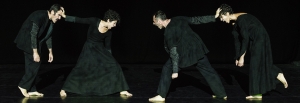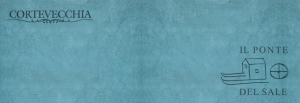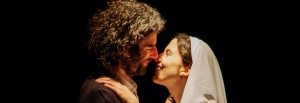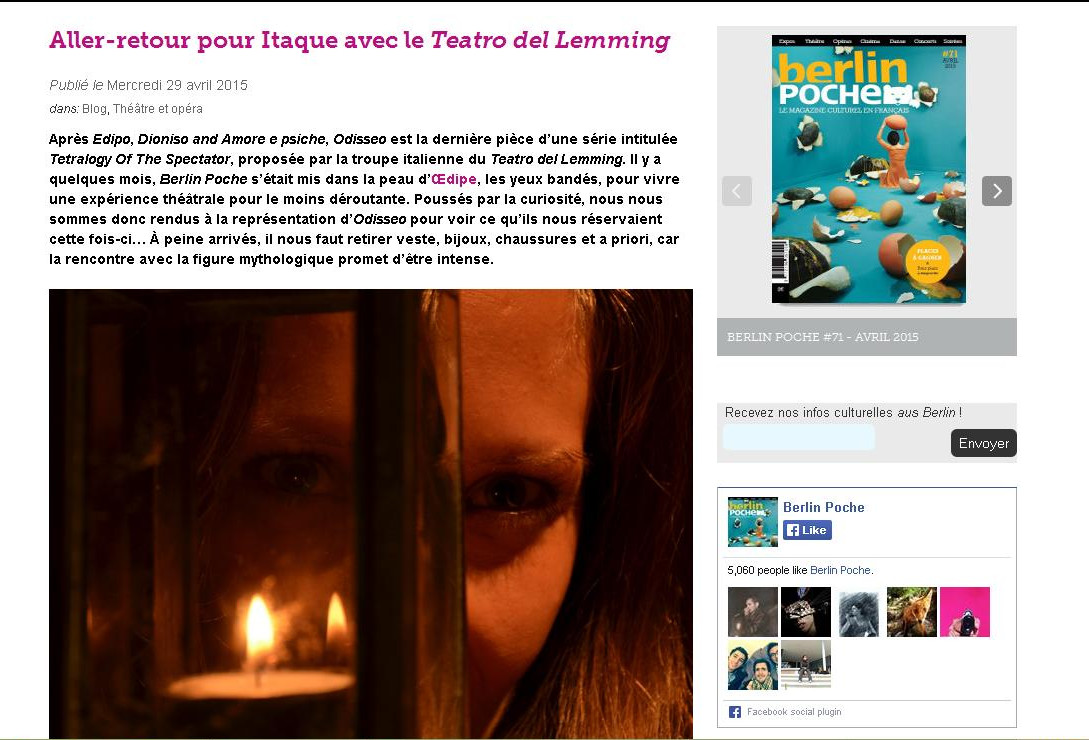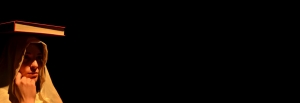16 novembre, ore 21.00
ALDES, ROBERTO CASTELLO
IN GIRUM IMUS NOCTE (ET CONSUMIMUR IGNI)
(Andiamo in giro la notte e siamo consumati dal fuoco)
Domenica 1 novembre, ore 18,30
STEFANO STRAZZABOSCO
DIMMI
letture e conversazioni poetiche
l’incontro è realizzato in collaborazione con Il Ponte del Sale - associazione per la poesia e ristorante Corte Vecchia di Polesella (RO).
21, 22 e 23 ottbre, ore 21.00
TEATRI DI VITA
JACKIE E LE ALTRE
un altro pezzo dedicato a Elfriede Jelinek
Teatro Comunale, 1 dicembre ore 20.45
TEATRO DEL LEMMING
GIULIETTA E ROMEO
lettere dal mondo liquido
in replica per le Scuole Superiori la mattina del 2 dicembre
con Chiara Elisa Rossini. Fiorella Tommasini, Diana Ferrantini, Katia Raguso, Maria Grazia Bardascino, Alessandro Sanmartin e Alessio Papa
regia Chiara Elisa Rossini e Massimo Munaro
Nel suo nucleo essenziale la vicenda di GIULIETTA E ROMEO, propone il conflitto fra individuo e potere, alla base, seppure in altro modo, anche del nostro precedente AMLETO. Qui però è il conflitto fra due famiglie rivali, i Capuleti e i Montecchi, a soffocare l'amore nati sotto contraria stella.
Non ci interessava raccontare, una volta di più, la loro celeberrima storia, quanto interrogarci, attraverso di loro, sul nostro tempo presente. Dove si colloca allora il mito di Giulietta e Romeo in questa società in cui anche l'amore sembra aver perso la sua forza titanica, ed è divenuto precario come tutte le cose del mondo? Chi sono Giulietta e Romeo per noi? C'è qualcosa per cui, anche noi oggi, saremmo disposti a sacrificare tutto?
The Actor
What remains when everything perish is the essence of the things as they are.
When there isn't a place to came back turn to the face in front of you,
look upon the world.
James Hillman, The Thought of the Heart and the Soul of the World
The experimental theatre implies an original and personal work on the art of the actor. For us, this work denies the egoic and narcissistic dimension that often reduce the actor as a guitto che si pavoneggia per un ora sulla scena e di cui poi non si sa più nulla, rather is a work that makes the actor, also in its etymological meaning, a guide - he who lead the spectator to that elsewhere that has always been the place of the theatre.
Experimental theatre is all that theatre pursuing:
- the autonomy of scenic language from a written play;
- the redefinition of the scenic space;
- the reformulation of the role and the gaze of the spectator;
- an original pedagogy of the actor;
- a link that connects the actors to the project of the company;
- a process and working times that permits to practice a real research.
PROJECTS
CALL FOR ENTRIES •residences for experimental theatre 2016
past projects:
be@home – 7 artistic residencies for experimental theatre
7 artistic residencies found through a call open for local, national and international artists. It is the Lemming's way to house, plan and record the work processes of any theatrical experimentation. The project is supported by Cassa di risparmio of Padova and Rovigo Foundation.
Il testimone che passa
A three years process to strengthened Lemming's organization structure.
Sogno dentro sogno
Sogno dentro sogno is an original Opera composed by Massimo Munaro. The making process involved some scholars from the Conservatory of Rovigo and Castelfranco (PD) and some actor students.
BIOGRAPHY
Theatre of Lemming was born in Rovigo in 1987.
The first year of activity bring out the group as one of the emergent realities of the new Italian scene.
In 1990 the group recieves the Totola Prize for the best direction with La città chiusa, the director Gianfranco De Bosio acts as chairman of the jury. In 1996 the group win the Giuseppe Bartolucci Prize from a jury presided by the reviewer Franco Quadri.
At the end of 90’s , the Lemming realizes a Teatralogy on the myth and spectator, formed by the works: EDIPO-sense’s tragedy for one spectator (1997), DIONISO-theatre tragedy (1998), AMORE EPSICHE-a tale for two spectators (1999), ODISSEO-
travel in theatre and, as post-faction to this project, A COLONO-wishing ritual for only one spectator (2001), L’ODISSEA DEI BAMBINI-travel in theatre for 20 children of all ages (2003).
These works represent a development, that take the group into a fresh and exiting characterized by direct, sensorial and dramaturgic involvement of spectators.
The absolute innovation of radical and physical relation and the unusual use of theatre space, point out Lemming theatre as a sole reality in the Italian theatre background. To these work were given hospitality by the most important Italian festivals (Santarcangelo, Volterra, Armunia, Polverigi, Drosdera, Crisalide,ecc.) and theatre (Teatro Valle and Quirino in Rome, Teatro dell’arte and Franco Parenti in Milan, Gobetti in Turin, Teatro della Tosse in Genova, ecc.) In 2000 Lemming is called in Marsiglia at the Italo-France days promoted by ETI and ONDA as represented of Italian theatre.
In 2001 Franco Vazzoler , teacher of theatral Italian literature at Genova University, and Marco Berisso write a monograph titled Teatro del Lemming, published by edition Zona, Genova.
In that years there are a lot of reviews on the group: from the first page of LA STAMPA, to LA REPUBBLICA, IL CORRIERE DELLA SERA, IL SOLE 24 ORE, IL MESSAGGERO, IL TEMPO, IL MATTINO, ecc, and also Radio1, Radio2, Radio3; articles about Lemming are presented also in magazines as L’ESPRESSO, PANORAMA, VIAGGI or D DI REPUBBLICA, ROLLING STONES, ecc.
In 2006m Lemming, after four years of hard work, finished a spectacle on Dante’s Divina Commedia, that the group called NEKYIA-sea journey by night. Hell, Purgatory, Paradise. On October 2011 the first part of Nekyia, HELL, was performed at the Festival Internacional de Teatro de Ourense (FITO).
This project represent a theatral practice’s synthesis, the only one in Italy, except for a big number of imitators, that placed the spectators in the centre of a physical and sensorial involvement that gives him strongest emotional upsetting.
At the same time, with this work is opened a new research stage that is going to think the relation between actors and spectators, not more for the single spectator, but in direction of a ramow community. These new research has produced on 2009 the work Antigone, that has debut at the Biennale of Venice.
In 2010, Teatro del Lemming debuts with its last production, Amleto, first part of a Shakespeare's trilogy. Amleto is a reflection over the relation between the individual (Hamlet) and power (the danish court).
In 2011 Teatro del Lemming was kept busy by the pedagogic- spectacular project “L'Edipo dei Mille” realized in collaboration with University Ca' Foscari of Venice, Foundation of Venice and Comune of Venice.
2013 is the year of two new productions: Juliet and Romeo - Letters from the liquid world, the second chapter of the ongoing shakesperean trilogy, and Sogno dentro Sogno, an original Opera composed by Massimo Munaro.
Lemming Theatre is a pedagogic theater, as all the big twentieth-century theater from Artaud to Brecht and over. A theater who reflects on himself. An actor’s and spectator’s pedagogy at the same time. And just from this pedagogic dimension derives the choice of a show for a few(...). “Who is the audience?” asked Savinio; and answered “Is everybody and nobody”. The theatral pedagogy of this experience (...)aims to the abolition of this anonymity. (...) In this there is no intention of an avant-gardistic provocation or elitism. (...) At the end, infact, spectators’ and actors’ roles aren’t denied, but, on the contrary, they are the centre of this dramaturgy: costantly under discussion, maybe on crisis, but never confused. So, what is assert, it’s first of all the dramaturgic rigour. Provocation is in things; is just the typical custom of passivity in theaters that gives a sense of provocation at this theater, which is, in his characteristic relation beetween actors and spectators, a theatre of disponibility, of width and of confrontation.
Franco Vazzoler, teacher of History of Italian theatral history at Genova University, in Teatro del Lemming Editor Zona, Genova, 2001
LEMMING'S PEDAGOGY
The actor isn't an ham who strats on the stage and of whom then nobody remember anything (W.S.), but is a guide: the one who is able to lead the spectator in the beyond of theatre.
To be a guide, the actor has to improve his skills of LISTENING – ADAPTATION – DIALOGUE..
The work of Lemming's actors develops these three principles simultaneously in four directions: toward himself, toward his partners, in the space, toward the spectator.
The main instrument of this research is body. The sense/the senses of the body.
In this type of theatrical work, the body isn't a prothesis of the mind, but is fullness, is something naked that permits the nakedness of the aim and the truth of the encounter with other aims and other bodies.
For us the five senses of the actor are an appeal at fullness of life and a way to reach the beyond of theatre and the creative skills of the actor.
Relating with himself, with his partners, with the space and with the spectator, the actor has tu naked himself radically, has to research deeply the listening and the attention toward himself and the others.
